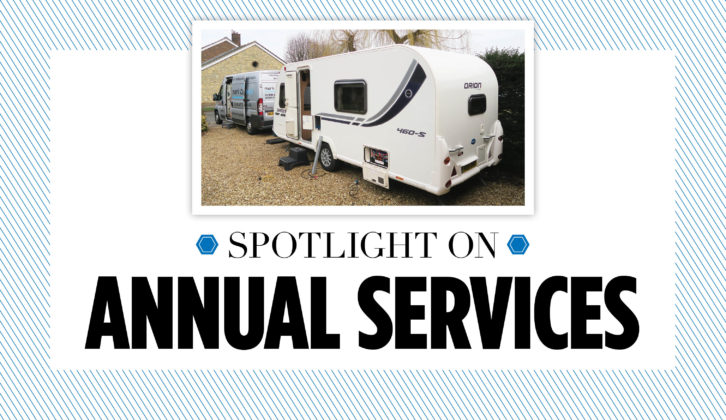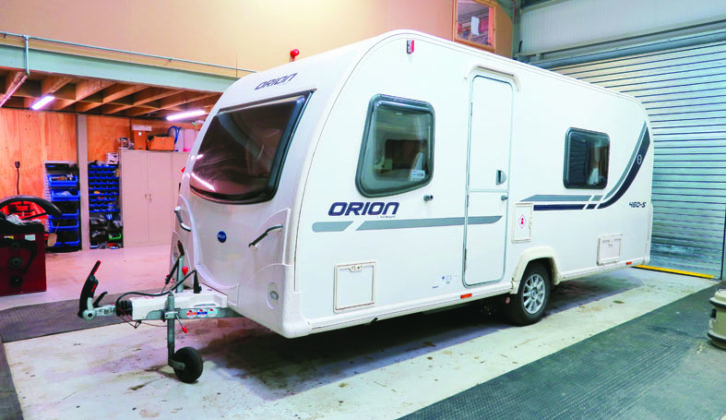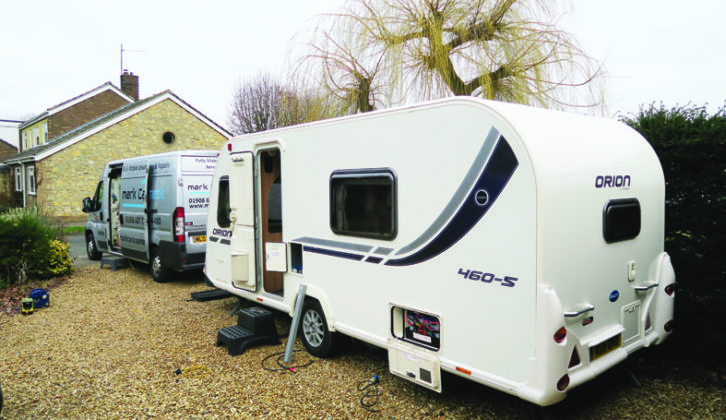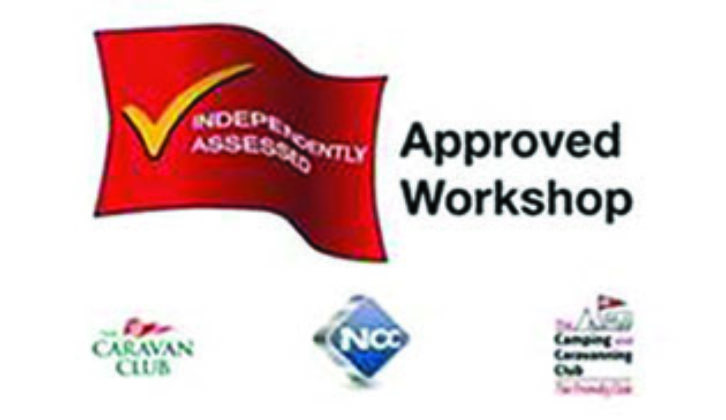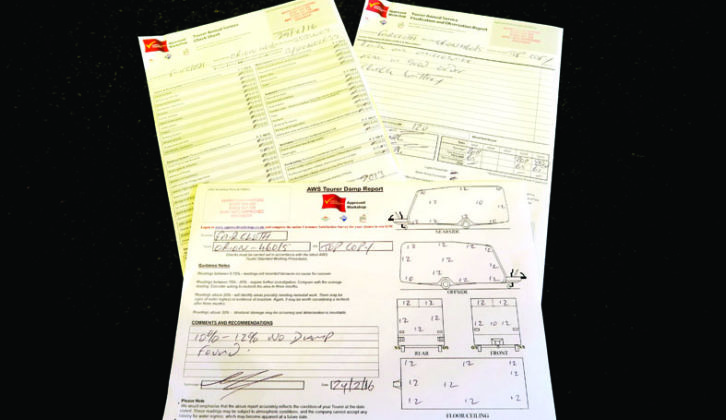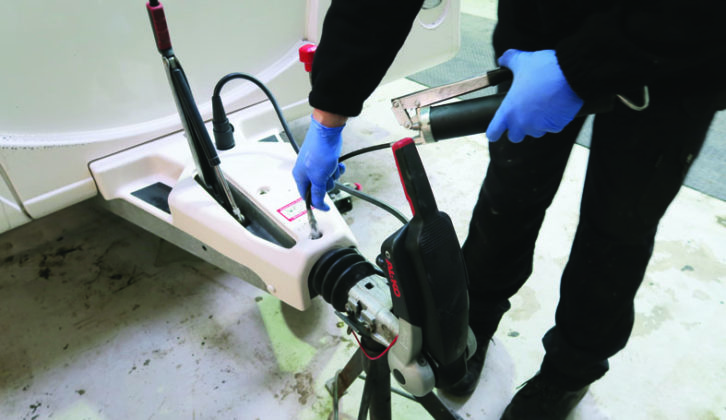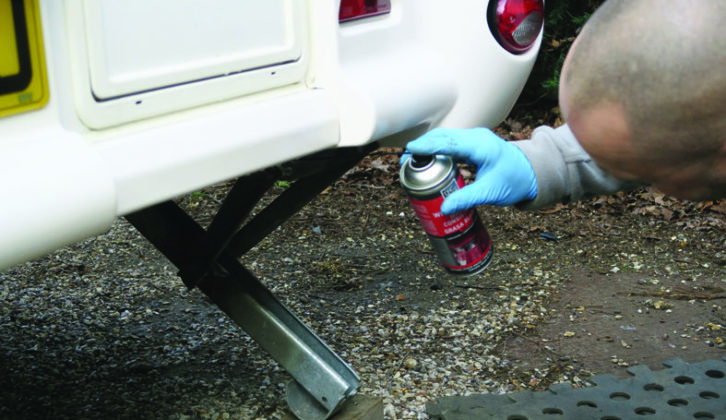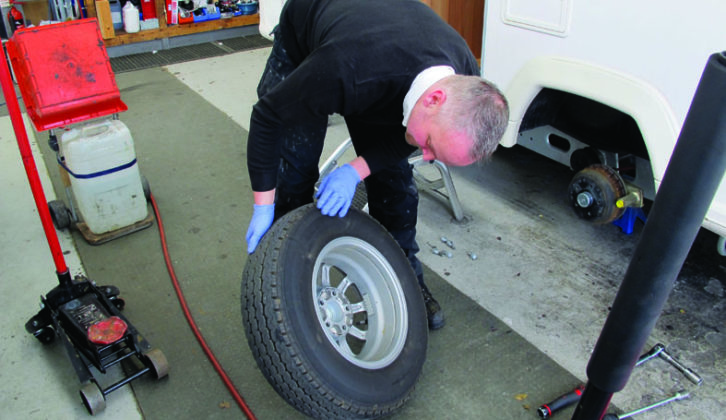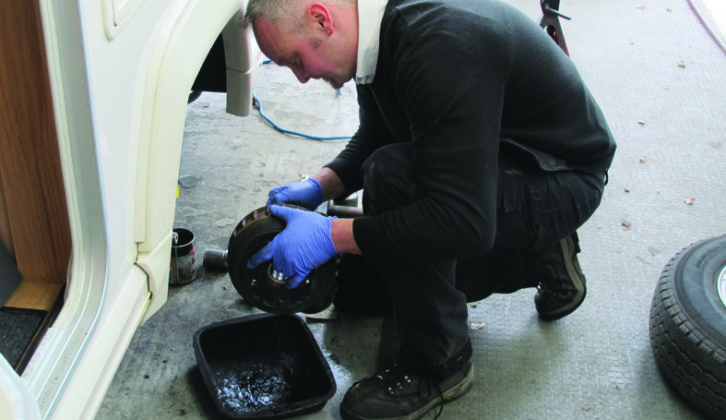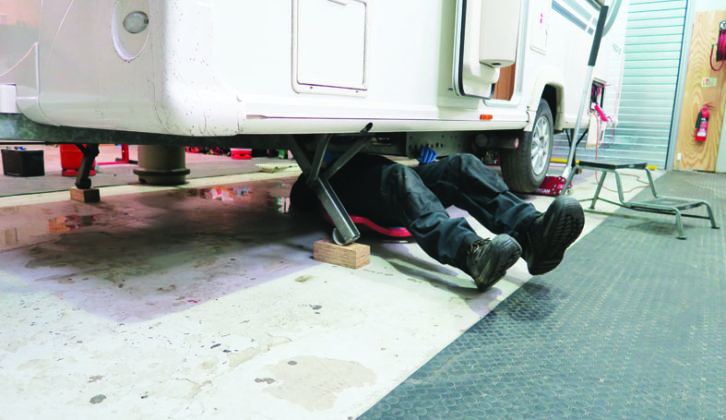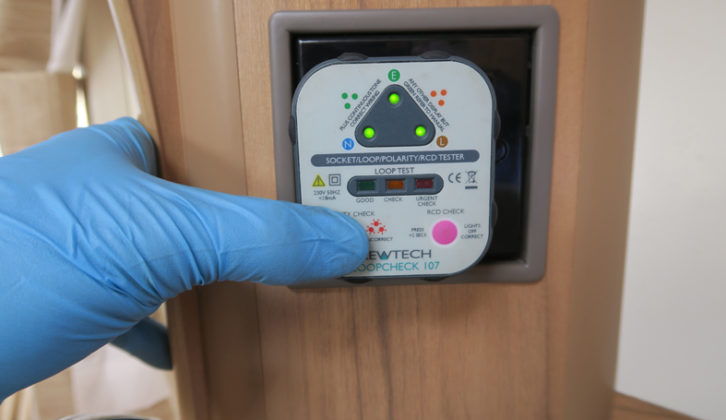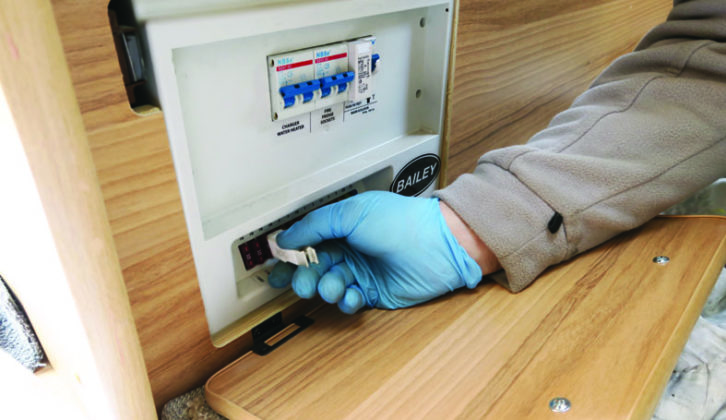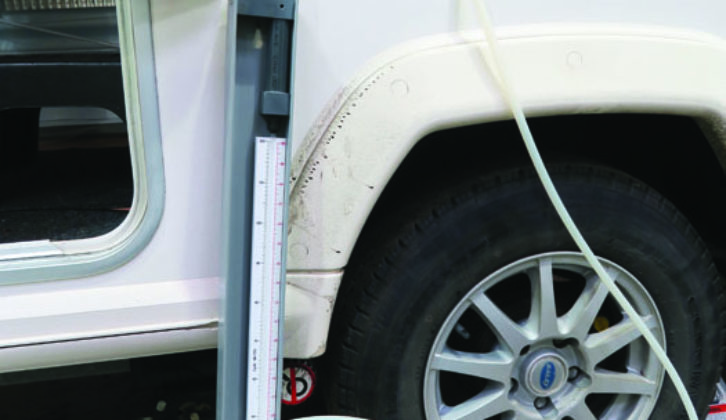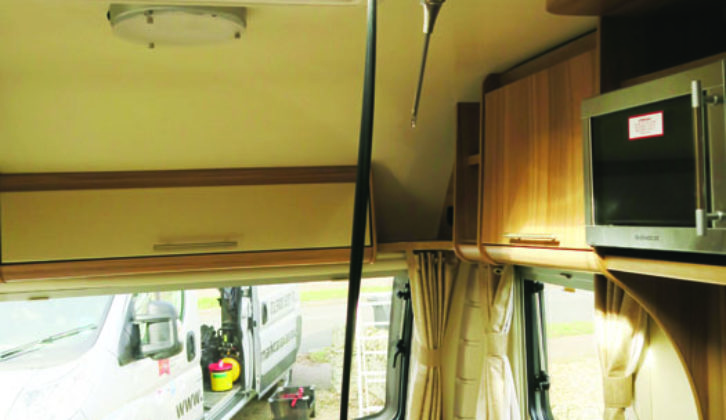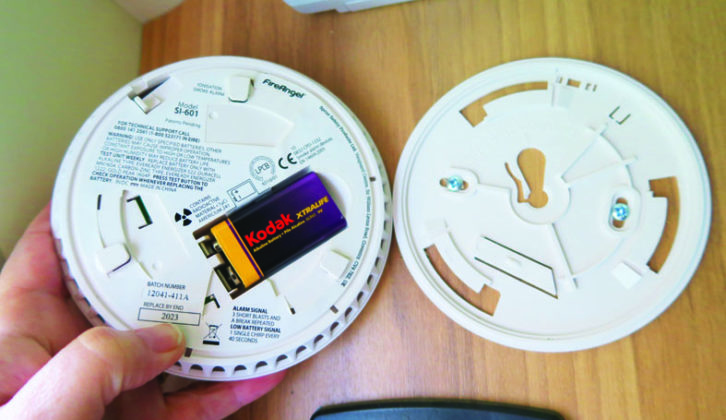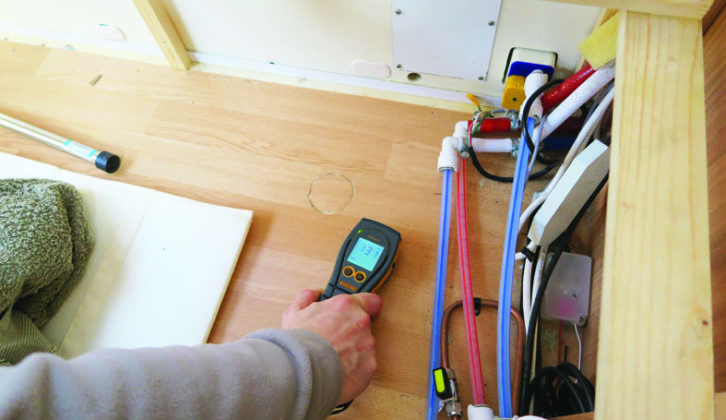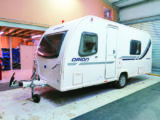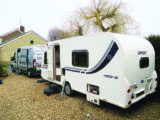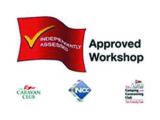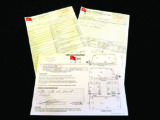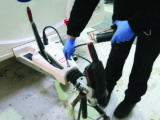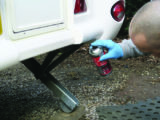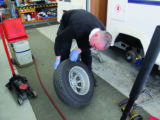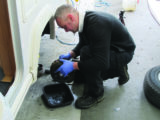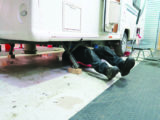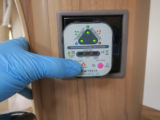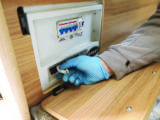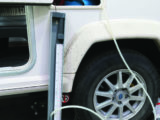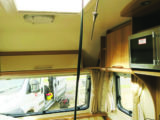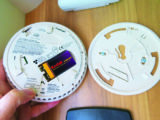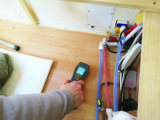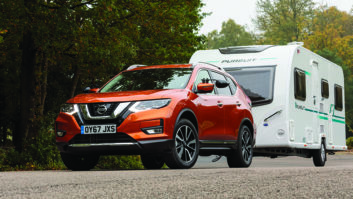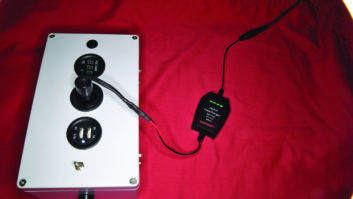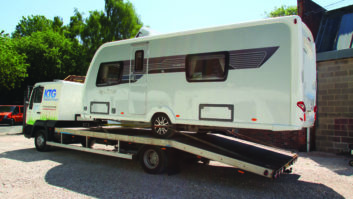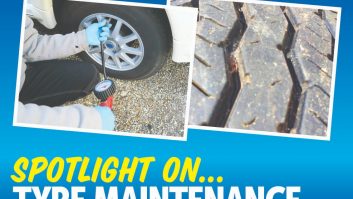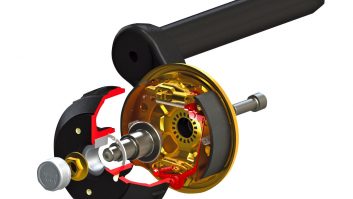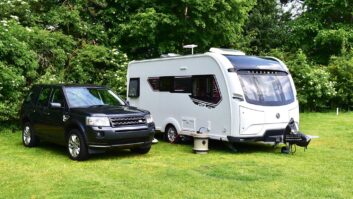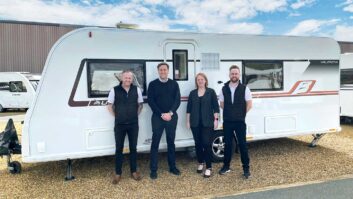It amazes me that some caravanners do not seem to recognise the importance of having a regular service carried out on their caravan.
You wouldn’t dream of driving a car without an MoT; not only because it is a legal requirement, but much more importantly, for safety reasons.
Currently, it is not a legal requirement to have a caravan serviced, although it is a legal requirement to ensure that it is roadworthy.
The annual service doesn’t just look at the inside workings of your caravan, but all of the external factors, too, which are discussed later in this article.
Identifying a reputable, efficient workshop or service engineer is the first hurdle, followed by understanding what should be carried out in a detailed service..
If you have bought a new caravan from a dealership, the chances are that they will offer to service if for you.
However, if you purchased your caravan privately, you might feel that you don’t have this option.
Most dealerships should be happy to carry out a service, whether the caravan was purchased from them or not.
Alternatively, a mobile technician can be a convenient option, because they will come out to you.
Let’s consider the differences between a fixed workshop and a mobile engineer:
Workshop
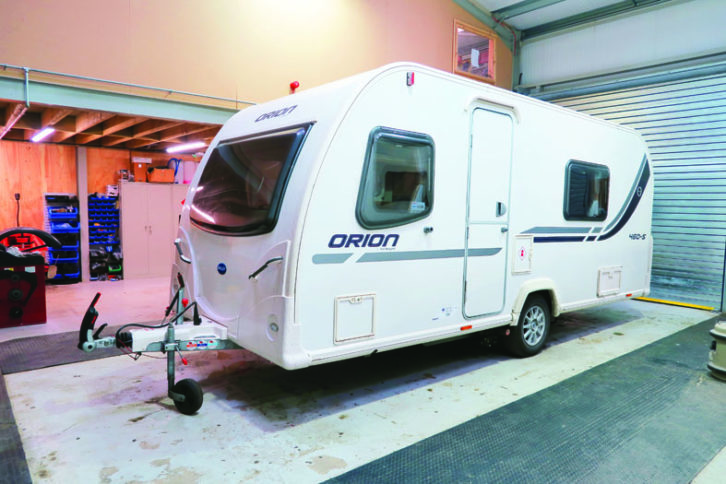
- The work is carried out under cover, therefore never hindered by the weather
- Space to keep items in stock
- Annual service reminders help you to organise your time
- It is your responsibility to deliver the caravan to the workshop and this might not necessarily be local
Mobile technician
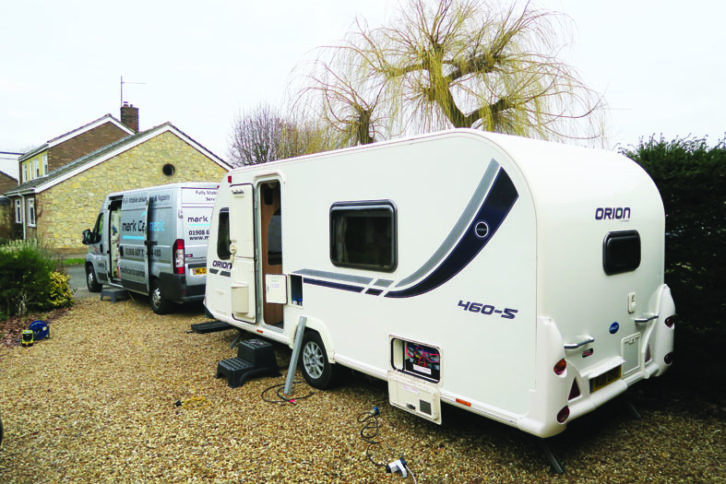
- Mobile technicians will come to where you store your caravan, whether on the driveway at home or at a storage facility – but do check with your facility before making a booking
- Requires one metre of clear space around the caravan
- There is no need to tow your caravan to a workshop, which makes it convenient and saves on the cost of fuel
- Time saving, because there’s no journey to and from a workshop
Selecting a reputable workshop or service engineer can feel a bit like wading through treacle.
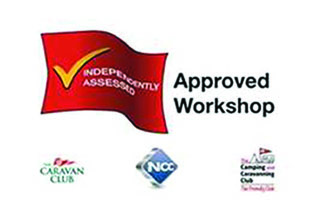
Fortunately, help is at hand. The Approved Workshop Scheme (AWS), set up by the NCC, the Caravan and Motorhome Club and The Camping and Caravanning Club, independently assesses workshops and mobile engineers to ensure qualified, competent work throughout.
Approved workshops and mobile engineers are fully qualified caravan servicing professionals, who undergo annual inspection by an independent inspector.
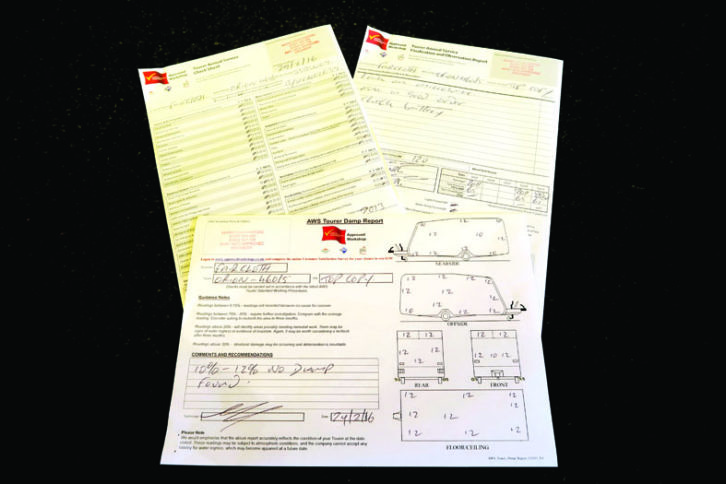
They must also have formal qualifications and adhere to the industry’s Code of Practice. At an AWS service, you will be provided with a checklist of all of the areas covered in the service, along with a detailed damp report. For further infromation about the AWS, visit approvedworkshops.co.uk.
What is included in a basic service?
A basic annual service, which can take between three and four hours to complete, can cover up to 60 individual tasks.
If you are using an AWS engineer to carry out the service, they should provide you with a checklist that includes at minimum the areas outlined below. However, they may assess other aspects, too (this isn’t a definitive list).
Chassis and running gear
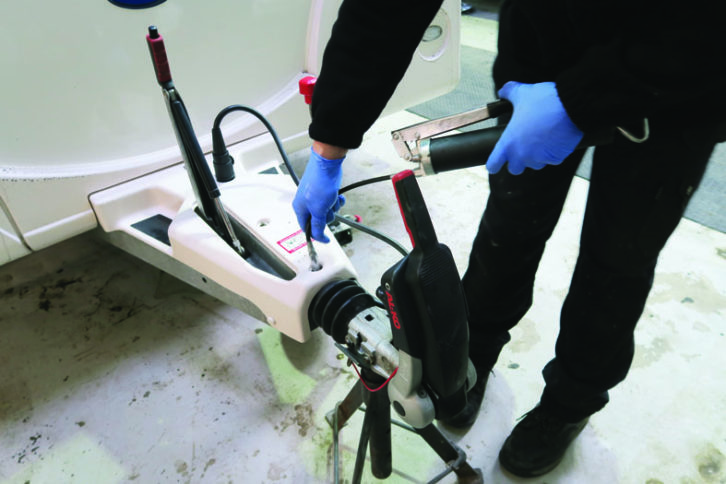
Key areas will be assessed and working parts maintained, such as the stabiliser, coupling head and breakaway cable. The corner steadies will be lubricated and tyres checked, including the spare wheel. Also included are brake adjustment, jockey wheel check and survey underneath for any damage or damp.
Electrical system
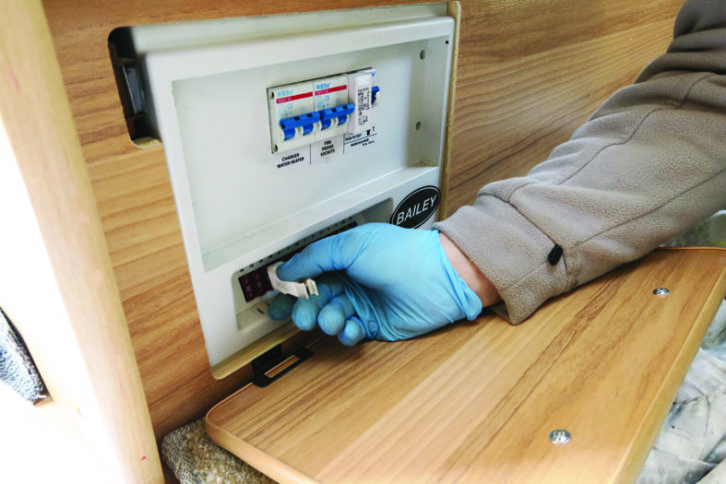
It is strongly recommended to use a qualified technician to carry out any electrical checks. All of the internal and external lights will be checked for faults. Sockets are tested using a loop check, which sends a signal to verify it is wired correctly.
Anything in your caravan that is electrical should be checked, for example, the fridge, the consumer unit, the TV socket and the battery. In addition, the miniature circuit breakers (MCBs) and fuses are assessed to ensure they are correct for the appliances in the van.
Gas system
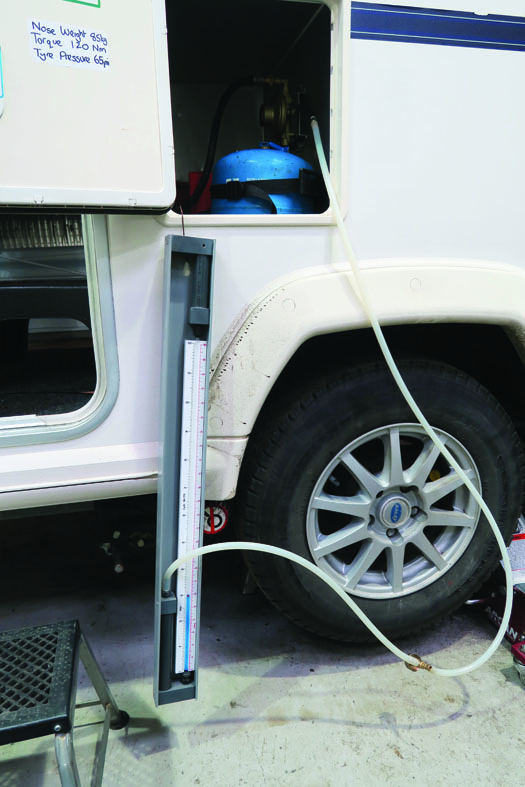
Again, it is highly recommended to use a qualified technician to carry out any gas checks.
The gas supply is checked for leaks, using a manometer. All appliances are turned on to verify they’re working properly. Vents are inspected.
Al appliances are turned off at the gas isolator taps, to check the flame failure device cuts in.
Next, all of the appliances are turned on and a flue gas analyser is run for a minimum of 15 minutes with all windows and doors closed, for a carbon monoxide room test.
Water system
Water is run through the whole system so that any blockages in the waste-water outlet can be identified and any leaks in the taps flagged up.
The condition of the toilet valve seal is checked, to ensure that it is well lubricated and the battery-operated flush is working properly.
Bodywork
All of the caravan windows, doors, flyscreens and blinds are assessed, to check for smooth operation.
The bodywork, including the roof, undergoes a careful visual inspection for any damage or cracks. It’s amazing how few of us think to check out the roof?
Ventilation
All low- and high-level vents in the caravan are checked for obstructions, and rooflights are opened and closed to make sure that they are operating as they should be.
Fire and safety
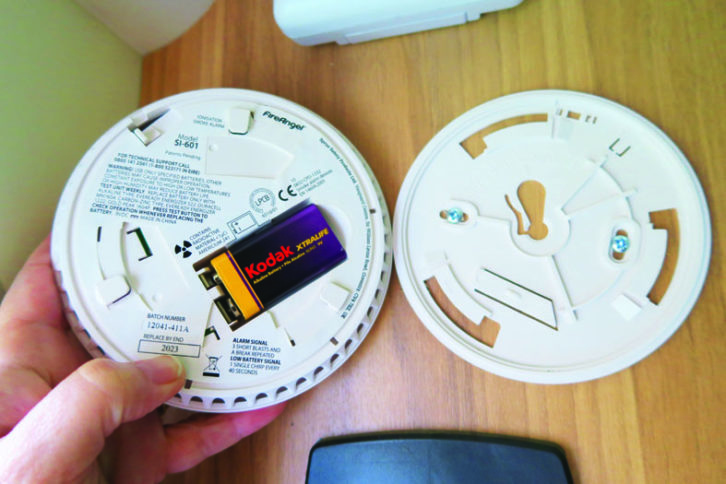
Any fire and safety equipment fitted inside your caravan, such as a smoke alarm or a carbon monoxide detector, will be tested and their expiry dates checked.
Fire extinguishers also have an expiry date, and fire blankets will be evaluated to determine that the housing unit is secure.
Damp report
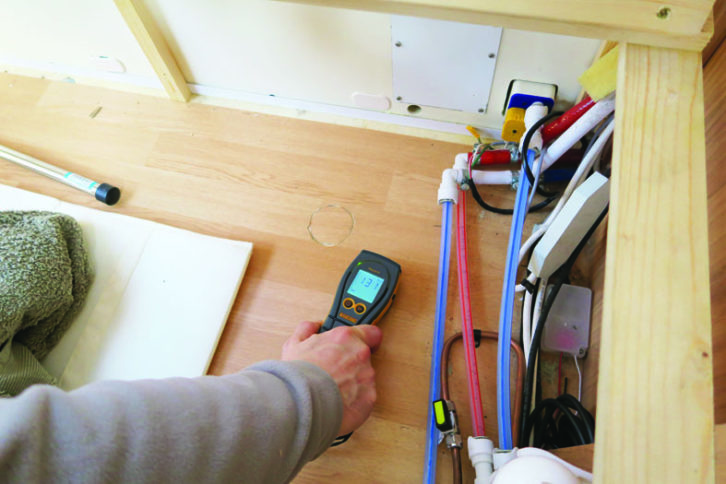
One of the most important checks is the damp report. If there is damp inside your caravan, it is really important to identify what is causing the damp and to rectify problems before it gets worse. Even in newer models, damp readings can be detected and do not necessarily imply that the bodywork has failed.
Damp readings provide a range of figures. If the reading is 0-15%, there are no concerns, while 15-20% will require further investigation and a repeat check within three months. Anything above 20% requires urgent attention, because this highlights an area of water ingress.
What’s not included?
When you arrange your service, establish what is included in the inspection, because sometimes, the damp report is omitted. The following would require an additional payment:
- In-depth service of individual appliances, such as the fridge
- Motor mover
- Solar panel
- Air conditioning
Final thoughts
Having spent your hard-earned money on a caravan, it would be remiss to avoid having it serviced on a regular basis.
Maintaining your van in this way will pay dividends in the long term, particularly when selling on in the future.
Sophisticated equipment requires sophisticated tools, so by using an AWS workshop or mobile engineer, you’ll be safe in the knowledge your van has been serviced by a highly qualified, competent technician.
Don’t forget to ask for your service check-sheet and damp report. Finally, plan ahead and book in your service sooner rather than later, bearing in mind workshops and mobile engineers are particularly busy in the early spring.
If you liked this… READ THESE:
Caravan genius: Weights and Measures
How to choose the right towbar
If you’ve enjoyed reading this article, why not get the latest news, reviews and features delivered direct to your door or inbox every month. Take advantage of our brilliant Practical Caravan magazine SUBSCRIBERS’ OFFER and SIGN UP TO OUR NEWSLETTER for regular weekly updates on all things caravan related.
Approved workshops and mobile engineers are fully qualified professionals who undergo annual inspection
